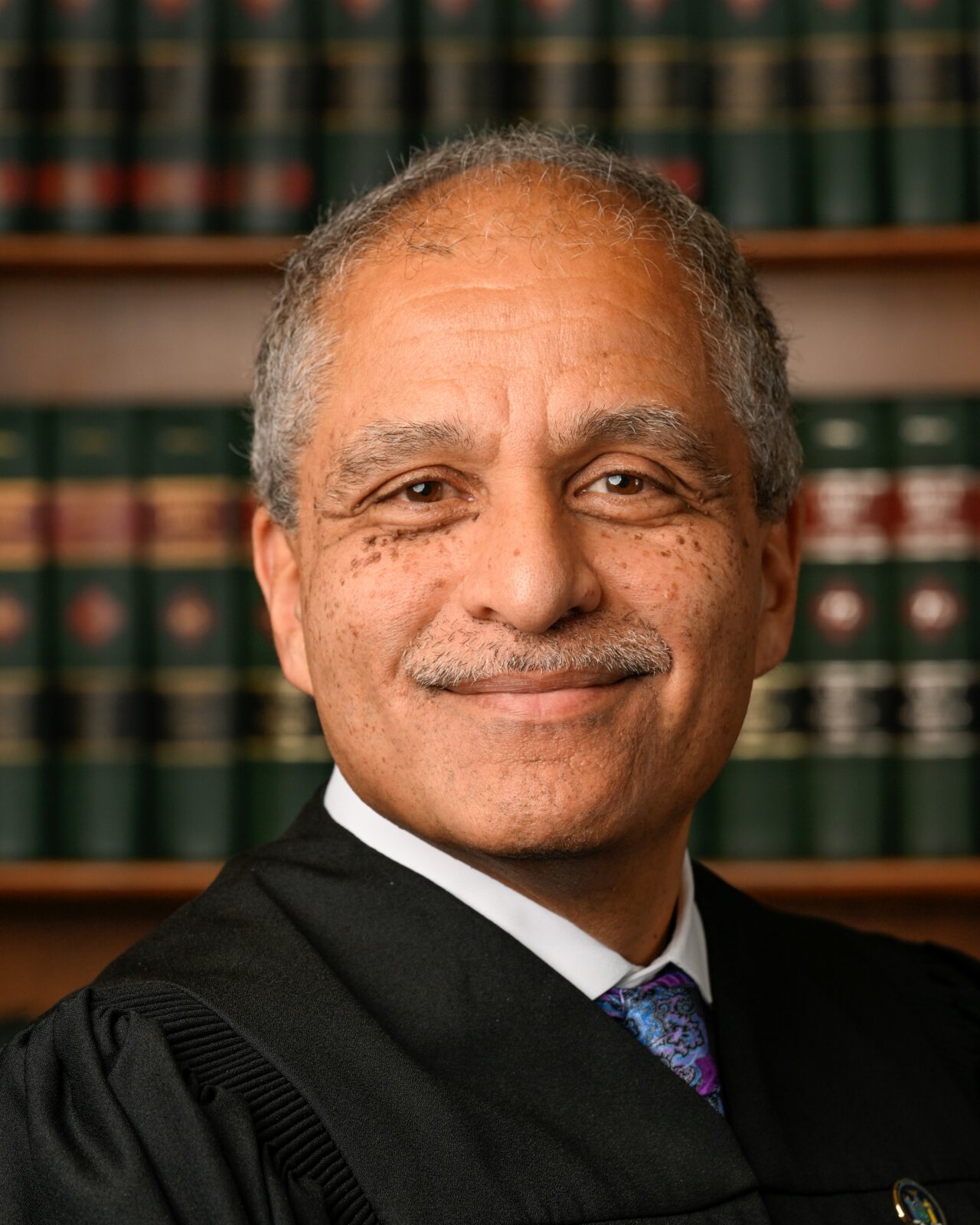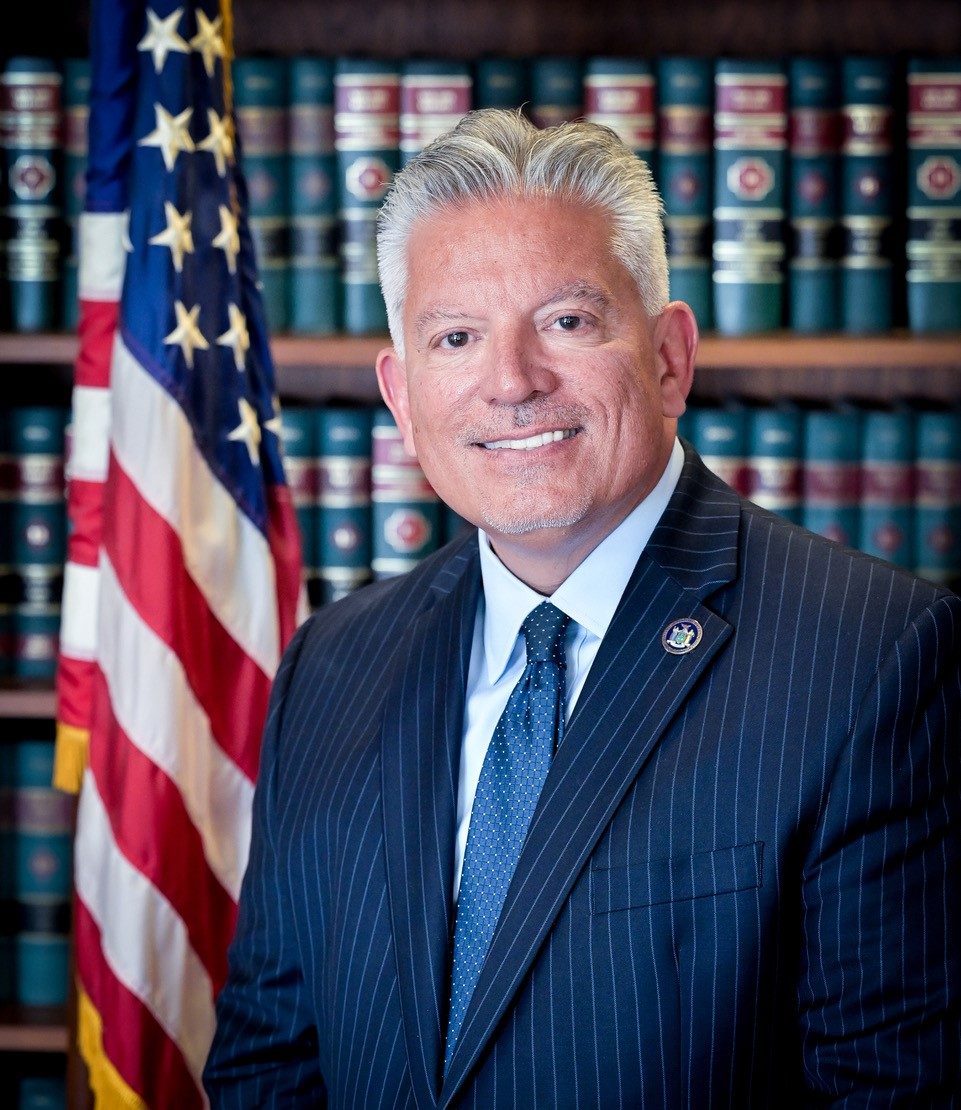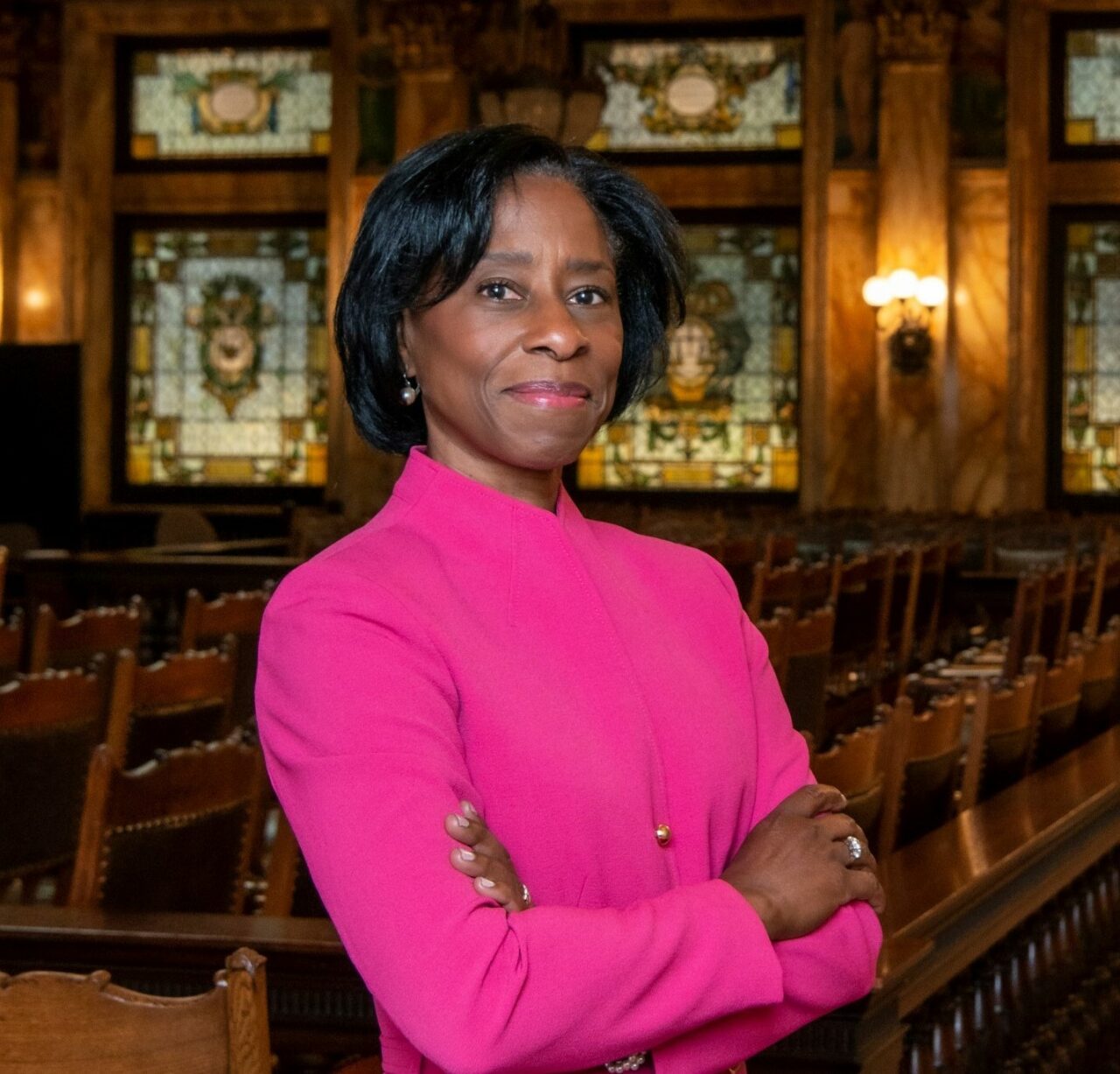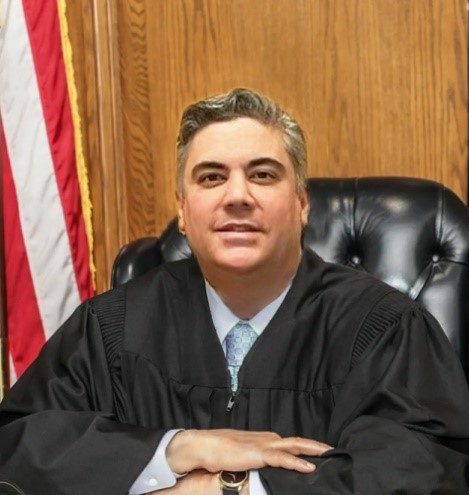
Hon. Rowan D. Wilson
Distinguished Jurist Award
To honor a jurist who embodies the highest ideals of the Judicial Section and recognize judicial excellence and extraordinary commitment to the rule of law.
Hon. Rowan D. Wilson, Chief Judge of the Court of Appeals, was born in Pomona, California, and grew up in Berkeley, California. He received his A.B. degree from Harvard College in 1981, and his J.D. degree from Harvard Law School in 1984. He was admitted to the bar of the State of California in 1985, and the bar of the State of New York in 1987. From 1984 to 1986, he served as a law clerk to the Honorable James R. Browning, Chief Judge of the United States Court of Appeals for the Ninth Circuit, based in San Francisco, California.
In 1986, he joined the firm of Cravath, Swaine & Moore in New York City as an associate, and was elected to partnership there in 1991, in which position he continued until February 2017. His practice encompassed a wide variety of matters, including antitrust, intellectual property, securities and common-law fraud, contract, labor and employment, civil rights and first amendment issues.
On January 15, 2017, Governor Andrew M. Cuomo nominated Judge Wilson to serve as an Associate Judge of the Court of Appeals, and the New York State Senate confirmed his nomination on February 6, 2017. On April 10, 2023, Governor Kathy Hochul nominated Judge Wilson to serve as Chief Judge of the Court of Appeals and the State of New York. The New York State Senate confirmed his nomination on April 18, 2023. While in private practice, Judge Wilson served on the boards of several charitable and not-for-profit organizations and handled numerous pro bono matters.

Hon. Joseph A. Zayas
Distinguished Jurist Award
To honor a jurist who embodies the highest ideals of the Judicial Section and recognize judicial excellence and extraordinary commitment to the rule of law.
Hon. Joseph A. Zayas was appointed by Chief Judge Rowan Wilson in May 2023 as the Chief Administrative Judge of the New York State Unified Court System, the highest-ranking administrative position within the New York State Judiciary. Judge Zayas oversees the day-to-day administration and operation of the statewide court system, including its $3.7 billion dollar budget, 3,300 state and local judges and 15,000 non-judicial employees in over 300 locations across the state.
Judge Zayas was previously appointed by New York’s Governor as an Associate Justice of the Appellate Division, Second Department – an intermediate appellate court which has jurisdiction over portions of New York City and the suburbs surrounding New York City. He previously served as the Administrative Judge for Supreme Court in Queens County, the second most populous county in the State. He was elected as a Justice of the Supreme Court in Queens County in 2016, appointed as a Judge of the Court of Claims by New York’s Governor in 2012, and originally appointed as a Judge of the Criminal Court of New York City by New York City’s Mayor in 2003. As a trial judge and an administrative judge of a trial court, Judge Zayas presided over jury trials in criminal cases and served as the Presiding Judge in the county’s Youth Court, Drug Treatment Court, and Mental Health Treatment Court. Throughout his judicial career, Judge Zayas has published numerous opinions in criminal, civil and family cases, lectured extensively on various areas of the law and was an active member and officer of the Latino Judges Association.
Prior to being appointed to the bench, Judge Zayas served as a law clerk to the Hon. Rolando T. Acosta in Civil and Supreme Court and at the Harlem Community Justice Center, a problem-solving court serving the communities of East and Central Harlem. Prior to working with Justice Acosta, Judge Zayas served as an attorney with The Legal Aid Society’s Capital Defense Unit, Criminal Appeals Bureau, and Criminal Trial Division.
Judge Zayas is a graduate of Columbia University School of Law, and Fordham University. He attended public schools in New York City and was raised in the Frederick Douglas Housing projects.
Judge Zayas and his wife, Catherine Zayas, have been married for over four decades and they have three adult children and five grandchildren.

Hon. Dianne T. Renwick
Advancement of Judicial Diversity
The NYSBA Advancement of Judicial Diversity Award serves to recognize individuals for their efforts to promote diversity on the bench throughout New York State. Recipients embody the New York State Bar Association’s commitment to diversity and inclusion at all levels of the judiciary.
Hon. Dianne T. Renwick is Presiding Justice of the New York State Supreme Court, Appellate Division, First Department. Her historic appointment by Governor Kathy Hochul, in June 2023, makes her the first woman of color to serve as Presiding Justice of any Appellate Division in the state, and only the second woman to lead the First Department since its creation in 1894.
Justice Renwick began her legal career representing indigent criminal defendants as a staff attorney for the Bronx office of the Legal Aid Society’s Criminal Defense Division, later joining the Federal Defenders.
Justice Renwick’s judicial career began when she was appointed as a New York City Housing Court Judge in 1997. She was elected as a Justice of the Supreme Court of the State of New York in 2001 and was appointed to the Appellate Division, First Department in 2008.
As a jurist committed to improving the courts and legal profession, Justice Renwick also serves on the Board of Trustees of the Historical Society of the New York Courts, the Practicing Law Institute, and the New York State Permanent Judicial Commission on Justice for Children.
A proud graduate of Cornell University and Benjamin N. Cardozo School of Law, Justice Renwick is a member of Cardozo School of Law’s Board of Overseers and was named the law school’s Alumna of the Year in 2010.
Justice Renwick is the recipient of numerous awards, including the Jewish Lawyers Guild’s Golda Meir Memorial Award, the Westchester Black Bar Association’s Constance Baker Motley Award, and the Bronx County Bar Association’s Judicial Recognition Award.
A lifelong resident of the Bronx, Justice Renwick has an unshakable commitment to civic education. She mentors students and serves on legal, educational, and cultural boards and committees, including as a Trustee of the New York Botanical Garden.

Hon. James L. Hyer, J.S.C.
Advancement of Judicial Diversity
The NYSBA Advancement of Judicial Diversity Award serves to recognize individuals for their efforts to promote diversity on the bench throughout New York State. Recipients embody the New York State Bar Association’s commitment to diversity and inclusion at all levels of the judiciary.
Hon. James L. Hyer is an elected New York State Supreme Court Justice in the Nineth Judicial District, is the Chairman of the 9th Judicial District Access to Justice Committee and is a Commissioner of The Richard C. Failla LGBTQ Commission of the New York State Court System. Judge Hyer is a member of the Board of Visitors of Pace University Elisabeth Haub School of Law and previously served as an Administrative Law Judge for the Westchester County Human Rights Commission. Judge Hyer has served as the President of the Westchester County Bar Association, and served as Chair of the Law Day Committee, Public Service Committee, Awards Committee, as well as a Hearings Officer for the Grievance Committee.
Judge Hyer is a member of the New York State Bar Association where he served on the House of Delegates, Nominating Committee, Task Force on Incarceration Release Planning and Programs and serves as a New York Bar Foundation Fellow. Judge Hyer was awarded a New York State Senate Commendation for Human Rights Advocacy, Pace Law School Leading Attorney Under 40, Westchester Bar Association Leadership Award, LGBT Bar Association of New York Community Excellence Award and Westchester Residential Opportunities Human Rights Champion Award.
Judge Hyer holds a B.A. in Political Science from Ramapo College of New Jersey, and a J.D. and Environmental Law Certificate from Pace Law School. Judge Hyer has served as an adjunct professor and published a number of scholarly articles in various areas of the law.
